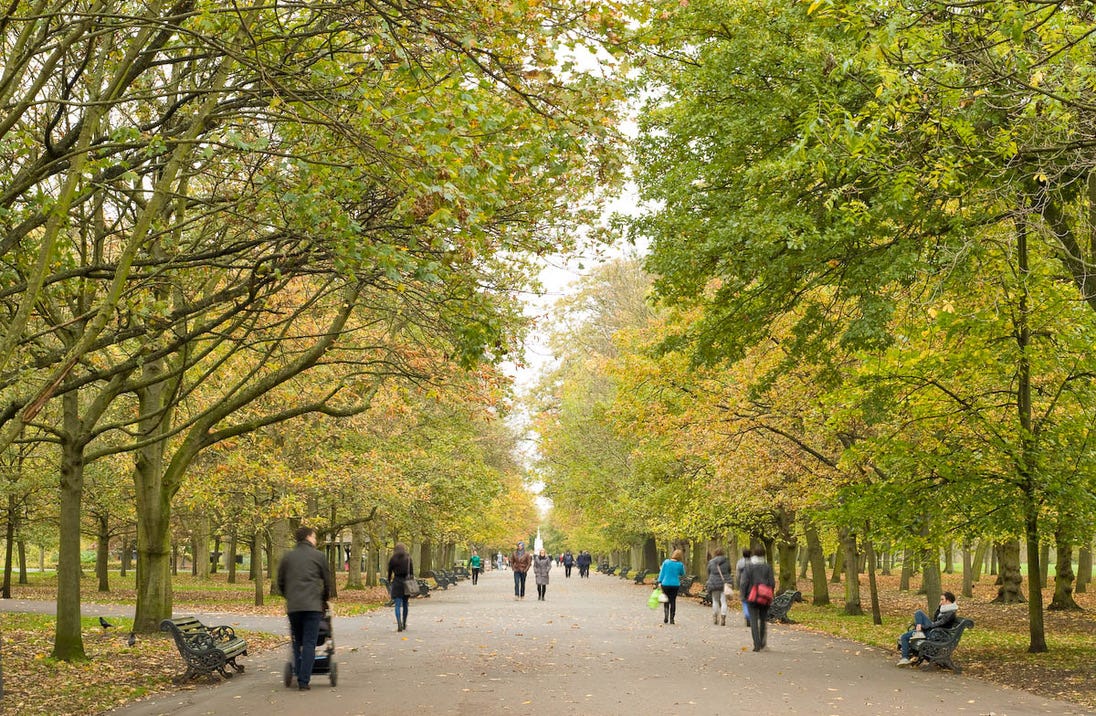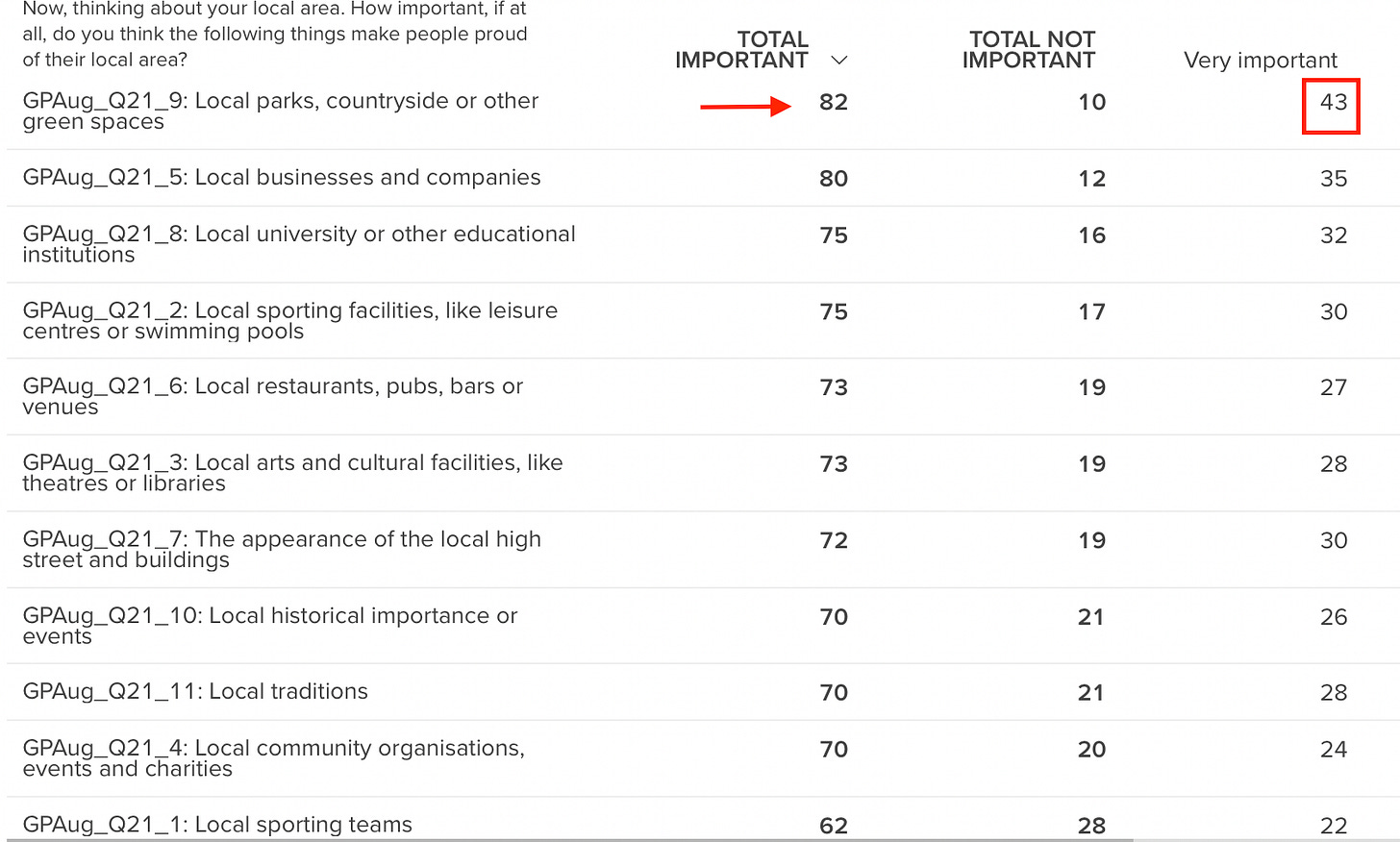The Healthy Parks Theory of Governance
Voters across the world believe that nice parks and green spaces matter most in terms of local pride.
Political parties spend a lot of time arguing over arcane policies to try to show people that they are “on their side” and delivering good public services. Outside of big-ticket health care, retirement, and national defense programs, most of these policy fights are of little consequence to average voters.
Politicians often forget that what really matters to most people is a proper sense of place. For citizens across the world, this mainly means the economic stability of their own families and home life. But it also includes, importantly, the social and physical conditions of the local community where they live.
Call it the healthy parks theory of governance.
If you live in a nice and safe town with plenty of welcoming public spaces, you probably are happier about the state of things and proud of where you live. If you live in a dirty or crime ridden place with lots of sketchy public spaces, you probably are unhappy about the state of things and have less pride in your hometown—especially if you’re not doing well economically. In general, political leaders who provide high quality, safe parks and other public spaces will be rewarded by voters come election time and supported while in office. Those who neglect to deliver decent public spaces for their constituents will suffer.
Data seem to back up this intuitive theory. Looking at new Global Progress and YouGov polling across 11 countries, the importance of local parks and green spaces to people’s perceptions of where they live is apparent.
Survey respondents were asked to evaluate a range of items based on how important they think each local characteristic is in terms of making people proud of where they live. As seen in the table below, many things matter to people in terms of local pride, including thriving businesses, educational institutions, restaurants and bars, and cultural offerings. But at the top of list across all 11 countries, with the most overall importance and the greatest level of intensity, are “local parks, countryside, or other green spaces.” Eighty-two percent of citizens globally see parks and green spaces as important to local pride, including 43 percent who say parks and green spaces are very important components of hometown pride.
In a follow-up question asking about the relative ranking of these items, parks and green spaces emerge well on top at 37 percent most important, ahead of local businesses (27 percent) and the appearance of the local high street and buildings (23 percent). Parks and green spaces come out on top in all 11 countries, ranging from 31 percent most important in the United States to 48 percent in the United Kingdom. These results are consistent across generations in all 11 countries, and across educational lines looking at the U.S. and U.K. data.
People understandably evaluate governing performance based on what is in front of them daily. Beyond personal finances, which are vital to perceptions of well-being and happiness, citizens in multiple national contexts care deeply about the physical environment in which they live.
The healthy parks theory of governance provides a clear agenda for enterprising politicians. Clean up local parks and trails. Open more green spaces. Fully fund safety and maintenance efforts and stop “anti-social” behavior in public places. Encourage people to take pride in their local environment and help keep parks and other gathering spots tidy, safe, and free from bad actors.
Citizens want to be proud of where they live—and this starts with the quality of the public spaces around them.





